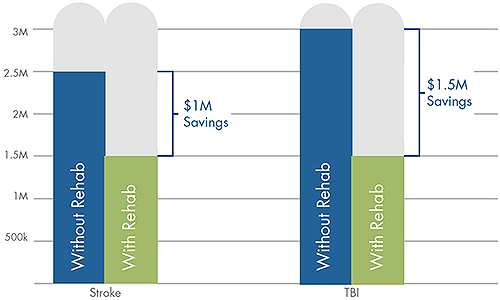Narconon Africa - Questions
Wiki Article
Facts About Narconon Africa Revealed
Table of ContentsNarconon Africa for DummiesThe Facts About Narconon Africa UncoveredThe smart Trick of Narconon Africa That Nobody is Talking AboutNarconon Africa - The FactsWhat Does Narconon Africa Do?Unknown Facts About Narconon AfricaThe Ultimate Guide To Narconon Africa
In a series of documents with Manudeep Bhuller and Katrine V. Lken, we get rid of these data challenges and the nonrandomness of jail time, providing brand-new understandings right into just how imprisonment impacts recidivism, employment, children, and criminal networks - Effective long-term drug rehab results. Figure 1 Our work research studies the results of imprisonment in Norway, a setup with two essential benefitsWe can further link this information to other family participants, consisting of youngsters and brother or sisters. Moreover, we know on co-offending that enables us to draw up criminal networks for observed criminal activities. Second, we can utilize the arbitrary task of criminal situations to judges who differ in their propensities to send defendants to prison.
Some courts send out accuseds to prison at a high price, while others are much more forgiving. We determine a judge's stringency as the ordinary incarceration price for all other cases a court takes care of, after managing for court and year fixed results, which is the level of random job. This quasi-random task of judge stringency can be used as a tool for incarceration, as it highly anticipates the judge's decision in the current instance, but is uncorrelated with various other instance attributes both by design and empirically.
Not known Factual Statements About Narconon Africa
Qualities of prisoners, including demographics and criminal offense categories, are extensively similar in Norway and various other nations, consisting of the United States, with the exceptions that the United States murder price is much greater, and race plays a bigger role there. What stands out as different, specifically compared with the United States, is the prison system.Figure 2In Norway, the typical time invested in jail is a little over 6 months, which is similar to most various other Western European nations. This contrasts with average United States jail time of practically 3 years, which is in large part the reason the USA is an outlier in its imprisonment price contrasted with the remainder of the world [Number 1]
Some Known Incorrect Statements About Narconon Africa
This offers far more splitting up between minor and hard wrongdoers than exists in the USA. There is no overcrowding in Norwegian prisons and better individual safety and security, with each detainee being appointed to their very own cell and a higher inmate-to-staff ratio than in the United States (https://www.pageorama.com/?p=narcononza12). Jails in Norway also supply well-funded education, medicine treatment, mental wellness, and work training programsOur research on the impacts of imprisonment on the offender, using the arbitrary job of judges as an instrument, returns 3 essential searchings for. Imprisonment discourages even more criminal habits. We discover that incarceration reduces the chance that a person will reoffend within 5 years by 27 percentage points and minimizes the corresponding variety of criminal costs per person by 10 charges.
Not known Facts About Narconon Africa
We find substantial reductions in reoffending likelihoods and advancing charged criminal offenses even after defendants are launched from prison. Our 2nd result is that prejudice because of directory selection on unobservable private characteristics, if disregarded, brings about the incorrect conclusion that time invested in prison is criminogenic. If we merely compare criminal accuseds imprisoned versus those not sentenced, we discover favorable associations in between incarceration and succeeding crime.This stands in comparison to our evaluation based on the random job of judges, which locates an opposite-signed result. Third, the decrease in criminal offense is driven by people that were not working prior to imprisonment. Amongst these people, imprisonment boosts participation in programs directed at enhancing employability and reducing recidivism, and this eventually elevates work and profits while inhibiting criminal behavior.

Imprisonment triggers a 34 percent point boost in engagement in job training programs for the formerly nonemployed, and within five years their employment rate increases by 40 percent factors. At the exact same time, the likelihood of reoffending within five years is reduced by 46 percent factors, and there is a decrease of 22 in the average number of criminal fees.
What Does Narconon Africa Do?

A probable description for the difference is that Norway's jail system differs noticeably, both in terms of prison-term size and jail conditions, from the US prison system. While understanding the effects of incarceration on the offender is an important primary step, recording spillover results is additionally crucial for evaluating criminal justice plan and designing reliable prison systems.
Get This Report on Narconon Africa

Ordinary the very least squares approximates reveal that children of incarcerated fathers are 1 percentage point more probable to be billed with a crime, relative to a mean of 13 percent, and reveal no effect on school grades. Using our judge stringency tool, we discover no analytical proof that a daddy's imprisonment impacts a youngster's very own criminal activity or school grades, however we are not able to rule out modest-sized impacts.
The smart Trick of Narconon Africa That Nobody is Discussing
We define criminal groups based on network web links to previous criminal situations. Our analysis returns three major searchings for. When a criminal network member is put behind bars, their peers' likelihood of being charged with a future crime decreases by 51 percentage points over the following four years. Likewise, having an older bro incarcerated lowers the likelihood his younger bro will be billed with a criminal offense by 32 percentage factors over the next 4 years.Report this wiki page